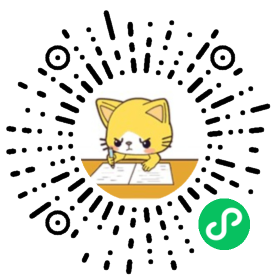【单选题】
化能无机自养微生物用___为电子供体。
A. CO2
B. H2
C. O2
D. H2O
查看试卷,进入试卷练习

微信扫一扫,开始刷题

答案
B
解析
暂无解析
相关试题
【单选题】
配置培养基时,防止磷酸盐、碳酸盐与某些阳离子结合形成难溶性的复合物而产生沉淀,常用的方法是___
A. 加入少量的螯合剂
B. 分别进行灭菌再混合
C. 适当减少灭菌时间
D. 以上均是
【单选题】
微生物细胞中,关于核酸的描述,以下说法错误的是___
A. 包括DNA和RNA
B. RNA主要以游离的形式存在
C. 细菌的核酸含量比霉菌高
D. 酵母细胞的核酸含量比霉菌高
【单选题】
关于微生物代谢调节的叙述,错误的是___
A. 微生物代谢调节主要有酶合成调节和酶活性调节
B. 组成酶的合成只受遗传物质的控制,与生长环境中的营养物质无关
C. 酶合成调节是一种快速、精细的调节方式
D. 在酶活性调节过程中,代谢产物与酶结合,能使酶分子结构和或许产生可逆变化
【单选题】
关于微生物代的能量代谢,错误的是___
A. 由光能合成能量的过程称为光合磷酸化
B. 化合物氧化过程中释放的能量的过程称为氧化磷酸化
C. 氧化磷酸化是一切微生物所共有
D. 微生物能量的载体只有腺嘌呤核苷三磷酸
【单选题】
以下对于好氧呼吸的描述争取的是___。
A. 电子供体和电子受体都是无机化合物
B. 电了供体和电子受体都是有机化合物
C. 电子供体是无机化合物,电子受体是有机化合物
D. 电子供体是有机化合物,电子受体是无机化合物
【单选题】
厌氧微生物___。
A. 进行呼吸,但是不利用氧气
B. 不进行呼吸,因为呼吸过程需要氧气
C. 不进行呼吸,因为它们利用光合成作用生成所需ATP
D. 不进行呼吸,因为它们利用糖酵解作用产生所需ATP
【单选题】
专性厌氧菌不能呼吸,只能发酵的原因是___。
A. 厌氧菌缺乏细胞色素和细胞色素氧化酶,不能氧化那些氧化还原电势高的物质
B. 厌氧菌缺乏过氧化氢酶,过氧化物酶和超氧化物歧化酶,不能清除有氧环境下产物的超氧离子和过氧化氢
C. 有氧条件下,细菌某些酶的-SH基被氧化为S-S基,从而失去活性
D. 以上均是
【单选题】
关于微生物的代谢产物,下列说法正确的是___。
A. 初级代谢产物是微生物生长和繁殖所必需的
B. 次级代谢产物是微生物生长和繁殖所必需的
C. 初级代谢产物只在微生物生长的最初阶段产生
D. 次级代谢产物在微生物生长的全过程都产生
【单选题】
葡萄糖经过糖酵解生成丙酮酸以后,___不是进一步的代谢途径。
A. 有氧条件下,生成CO2和H2O
B. 有氧条件下,产生柠檬酸
C. 无氧条件下,产生乳酸
D. 无氧条件下,产生酒精
推荐试题
【单选题】
在信贷资金总量一定的情况下,信贷资金周转速度、流动性、安全性、效益性的关系是___。
A. 周转速度快,流动性就越强,安全性就越能得保证。但效益性较差
B. 周转速度快,流动性就越强,安全性就差,效益性较差
C. 周转速度慢,流动性就越差,安全性也就越差,效益性较差
D. 周转速度慢,流动性就越差,安全性也就越好,效益性较好
【单选题】
下列属于直接融资的行为有___。
A. 何某向工商银行借款100000 元专门用于其企业的工程结算
B. A 公司向B 公司投入资金8000000 元,并占有B 公司30%的股份
C. A 公司通过融资机构向B 公司借款600000 元
D. 何某通过金融机构借入资金120000 元
【单选题】
下列关于贷款种类说法,错误的是___
A. 按照贷款币种可分为人民币贷款和外币贷款
B. 按照贷款期限可分为短期贷款和中长期贷款
C. 按照贷款对象可分为生产企业贷款和外商投资企业贷款
D. 按照贷款利率可分为浮动利率贷款和固定利率贷款
【单选题】
下列不属于间接融资的行为有___。
A. 文小姐向银行借款10 万元专门用于其房屋装修
B. A 公司购入B 公司20%的股权,价值80 万元
C. 赵小姐春节期间通过信用卡透支了2 万元购买年货
D. 郑先生通过银行贷款购买了一辆车
【单选题】
关于商业银行“安全性、流动性和效益性原则”的说法,不正确的是___。
A. 为了保证贷款的安全性,商业银行需要合理安排贷款的种类和期限
B. 在信贷资金总量一定的情况下,资金的周转速度加快,效益性相应较差
C. 在贷款规模一定的情况下,一般贷款期限越长,收益越大
D. 贷款期限越长,安全性越高
【单选题】
公司信贷的借款人指___
A. 经工商行政管理机关(或主管机关)核准登记的自然人
B. 经行政机关核准登记的企(事)业法人
C. 经行政机关核准登记的自然人
D. 经工商行政管理机关(或主管机关)核准登记的企(事)业法人
【单选题】
以下关于流动比率和企业资产的变现能力关系的说法中,正确的是___
A. 流动比率越高,说明企业资产的变现能力越强
B. 流动比率越高,说明企业资产的变现能力越弱
C. 流动比率越低,说明企业资产的变现能力越强
D. 流动比率与企业资产的变现能力没有关系
【单选题】
下列关于资产负债率的论述中,错误的是___
A. 资产负债率=负债合计÷资产合计×100%
B. 资产负债率=资产合计÷负债合计×100%
C. 资产负债率反映项目各年负债水平、财务风险及偿债能力
D. 银行从债权安全的角度考虑,总希望借款人的负债水平低一点
【单选题】
下列公式中,不能反映存货周转速度的是___
A. 销货成本/平均存货余额×100%
B. 存货平均余额×计算期天数/销货成本
C. 计算期天数/存货周转次数
D. (期初存货余额+期末存货余额)/2
【单选题】
下列不属于企业财务状况风险的是___
A. 借款人在银行的存款有较大幅度下降
B. 应收账款异常增加
C. 流动资产占总资产比重下降
D. 短期负债增加适当,长期负债大量增加
【单选题】
一般企业贷款操作流程:___
A. 建立正式客户-评级-授信-申请贷款-发放贷款
B. 建立正式客户-授信-评级-申请贷款-发放贷款
C. 建立正式客户-申请贷款-评级-授信-发放贷款
D. 建立正式客户-申请贷款-授信-评级-发放贷款
【单选题】
借款人还款能力的主要标志就是___。
A. 借款人的现金流量是否充足
B. 借款人的资产负债比率是否足够低
C. 借款人的管理水平是否很高
D. 借款人的销售收入和利润是否足够高

